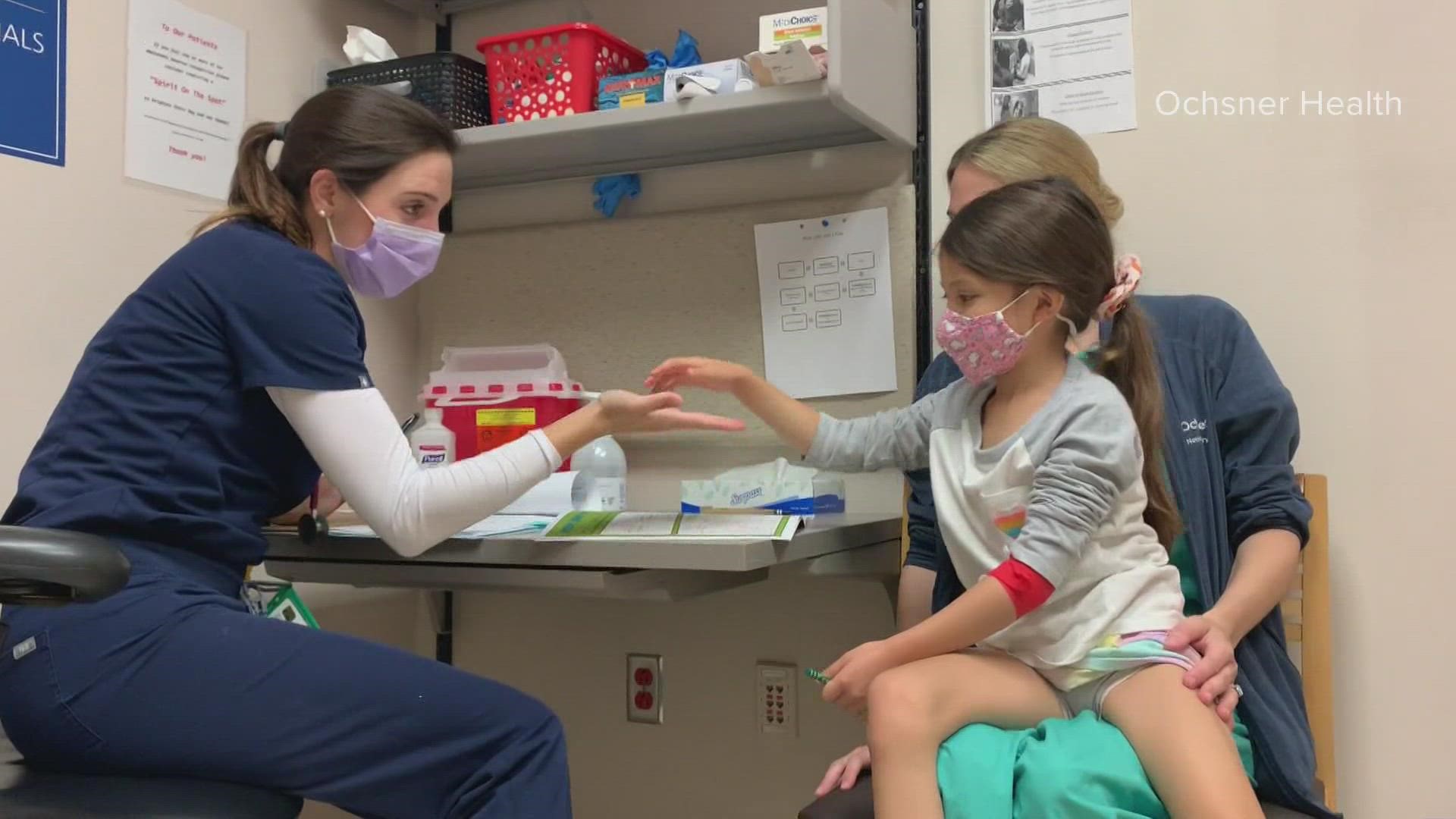RALEIGH, N.C. — The COVID-19 vaccine for kids under the age of 5 may now be "a new number of months" and not "weeks" away following a "setback" in Pfizer's vaccine testing," outgoing North Carolina Health Secretary Mandy Cohen said Monday in a coronavirus briefing ahead of the Christmas holiday.
On Friday, Pfizer announced their preliminary analysis from clinical trials found 2- to 4-year-olds didn't have as strong an immune response as expected to special low-dose shots. While the initial two-dose shot was found to be safe, the company is continuing the trials by testing three doses of the vaccine in babies and preschoolers.
"We saw that the Pfizer team is going to need to go back and relook at the dosing for our youngest ones before they're going to be able to come forward to the FDA for approval," Cohen said. "So a bit of a setback."
Pfizer and its partner BioNTech said if the three-dose study is successful, they plan to apply for emergency authorization sometime in the first half of 2022.
"If they're not as effective as we want them to be, they need to go back and really rework and that's what they're doing for our youngest ones," Cohen explained." "It's going to take a bit longer than we had been hoping for."
A kid-sized version of Pfizer’s vaccine already is available for 5- to 11-year-olds, one that’s a third of the dose given to everyone else 12 and older.
For children younger than 5, Pfizer is testing an even smaller dose, just 3 micrograms or a tenth of the adult dose.
Even without a vaccine for the youngest of children, Cohen still has recommendations on how to protect the entire family during Christmas and New Year's gatherings:
- Test two days before the gathering. Everyone is eligible for testing.
- Wear masks
- Get vaccinated, and if you already are, get your booster shot.
- Keep the gathering small.
- Make sure everyone is vaccinated
"If we all get vaccinated, it's going to mean less virus circulating to our kids," Cohen said.
Pfizer researchers analyzed a subset of youngsters in the study a month after their second dose to see if the tots developed levels of virus-fighting antibodies that were similar to teens and young adults who get the regular shots.
Youngsters under age 2 had similar antibody levels, but the immune response in 2- to 4-year-olds was lower, Pfizer vaccine research chief Kathrin Jansen said Friday in a call with investors.
So the study is being expanded to evaluate three of those very low-dose shots in children under 5. That third shot will come at least two months after the youngsters' second dose.
The Associated Press contributed to this report

